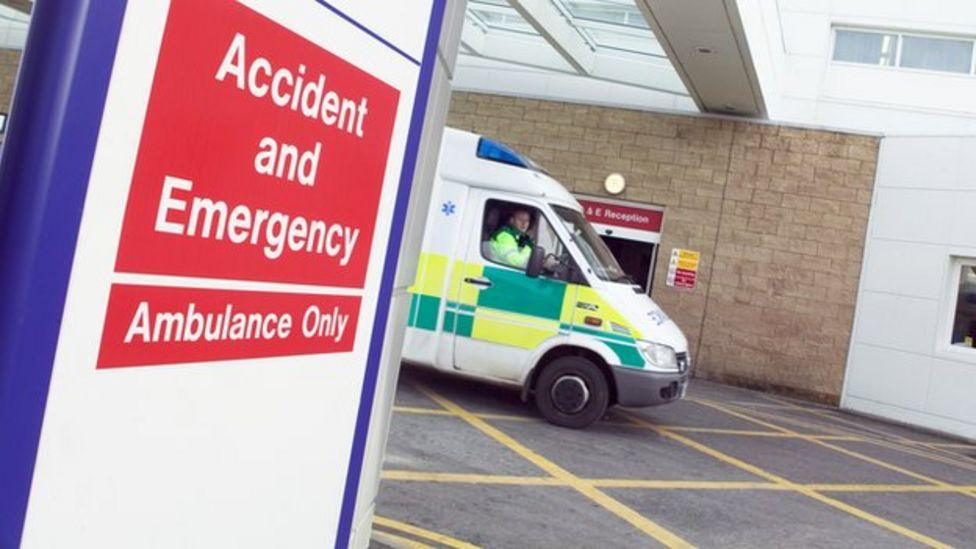Covid: Ambulance boss says sorry to patients over waiting times
- Published
Pauline Howie has urged the public to support ambulance staff
The head of the Scottish Ambulance Service has apologised to patients over increased waiting times.
Pauline Howie said staff were working under "unprecedented pressure" in response to a "huge increase" in Covid and non-Covid cases.
She said everything was being done to get people to hospital as quickly as possible, including hiring new staff.
And she urged the public to continue to support her colleagues "who have been working tirelessly for 18 months".
At First Minister's Questions on Thursday Nicola Sturgeon said the average wait last week for immediately life-threatening incidents was nine minutes and 30 seconds, a figure she described as "not good enough".
Opposition politicians have cited incidents where patients have faced far longer delays, with Scottish Conservative leader Douglas Ross describing how a stroke patient in Dumfries waited 14 hours for the arrival of paramedics.
The first minister told MSPs: "We know the pressure the ambulance service is under right now because of many of the other pressures in our national health service that have been caused, and indeed exacerbated in some respects, by the pandemic."
Pauline Howie, who has been chief executive of the Scottish Ambulance Service since 2009, said there had never been a period of such sustained pressure on the health and care systems.
She said: "We are really at full capacity at the moment and our hospitals are operating at, or near, capacity too.
"That in turn means it takes longer for us to hand patients over when we get to the emergency departments.
"The impact of that is that we are not able to get to patients who are waiting on an ambulance response as quickly as we would like to.
"I want to apologise to anyone who has experienced a delay."

The Unite union claimed this week that ambulance turnaround times were now taking six hours on average, and that some patients were waiting 24 hours for a hospital bed.
Union officials have called for waiting time delays to be declared a major incident at hospitals where A&E turnaround times exceed 30 minutes.
Ms Howie said the service had "been in an emergency situation for 18 months with this pandemic" and "challenging times" still lay ahead.
"We're working really closely with hospitals to understand what we can do until a patient is handed over into their care as quickly as we possibly can," she said.
"We've got all frontline staff who are able to operate ambulances out servicing those ambulances and we're working with partner agencies to provide support too.
"We've never had so much activity together across the whole of the health and care system."
Knock-on effect
Several health boards across the country have warned of rising Covid cases putting severe pressure on their services.
NHS Highland said it was having to return to prioritising vital care and treatment, such as emergency admissions and cancer care.
NHS Grampian said Covid patients were up more than 40% in a week while NHS Fife, NHS Ayrshire & Arran and NHS Greater Glasgow and Clyde have postponed non-urgent surgery.
Health Secretary Humza Yousaf has previously warned the NHS was facing a "perfect storm" of pressure.
He said A&E services and ambulance turnaround were under particular strain.
Pauline Howie said increasing hospital admissions for Covid and non-Covid cases were having a huge knock-on effect on the ambulance service.
She said: "With hospitals being busy, it means it takes longer for us to hand patients over to the care of clinicians in hospitals, who then have to try to find a bed for those patients if they subsequently require admission.
"Because our ambulances are at the emergency departments longer, there is less availability then for them to get out in response to other patients who are waiting on ambulances."
Ms Howie called on the public to try to help alleviate some of the problems by only phoning 999 if they have an immediately life-threatening emergency.
"Otherwise, please contact 111 or your GP during the day," she said.

